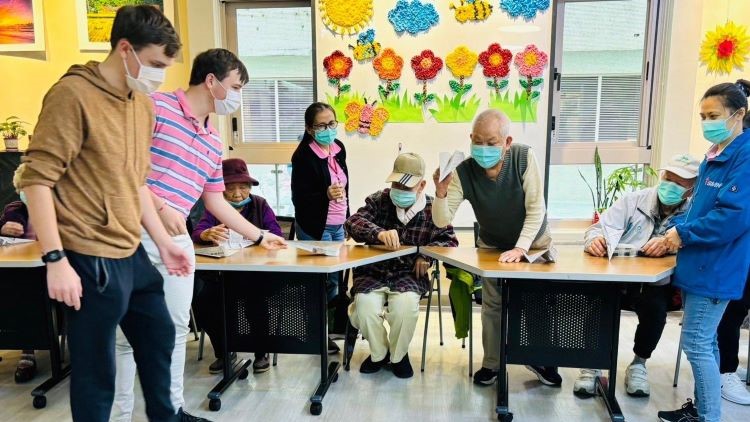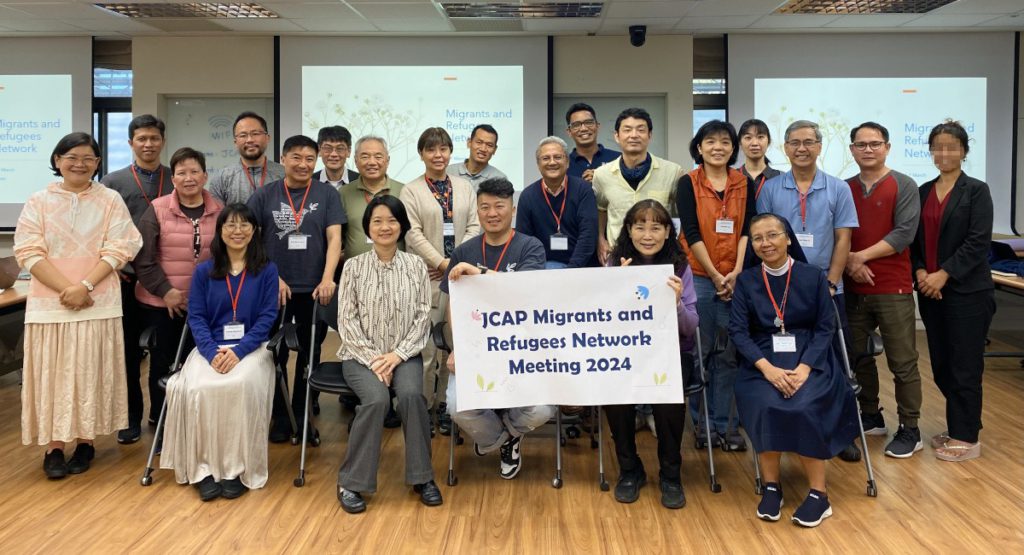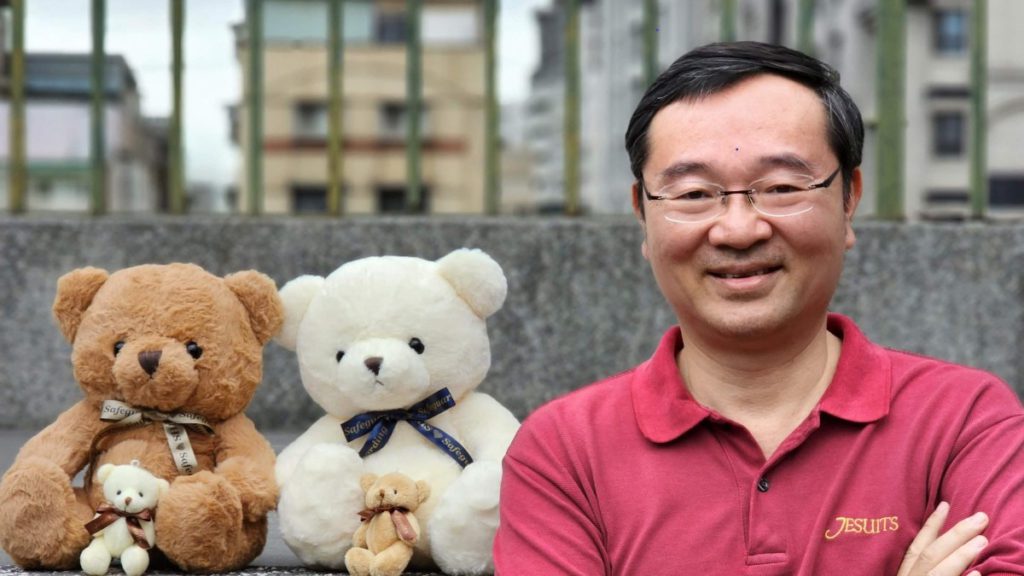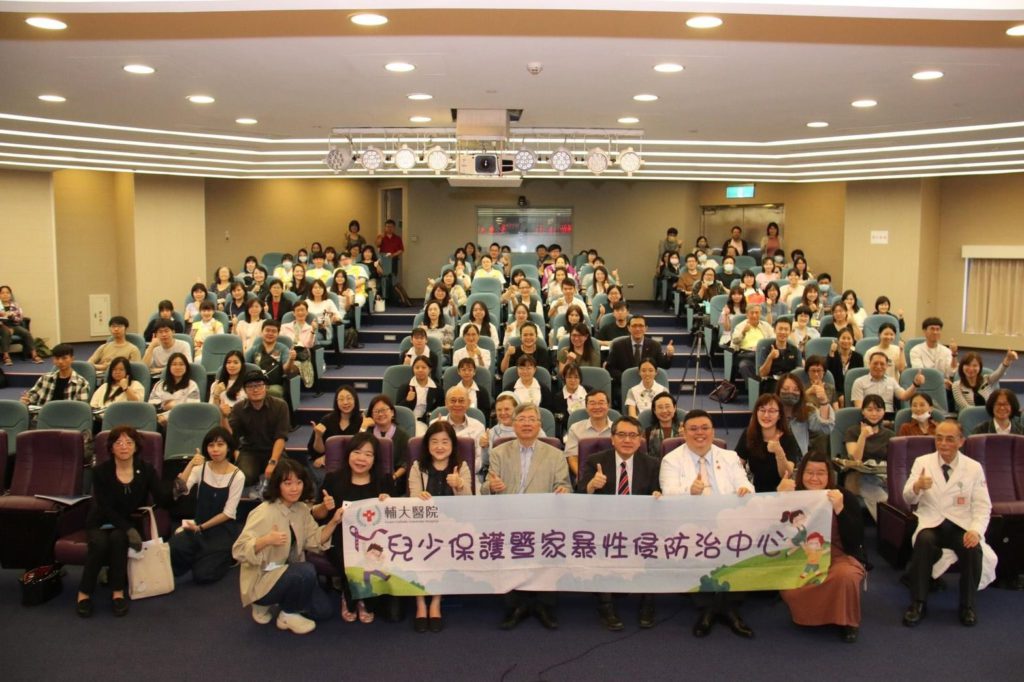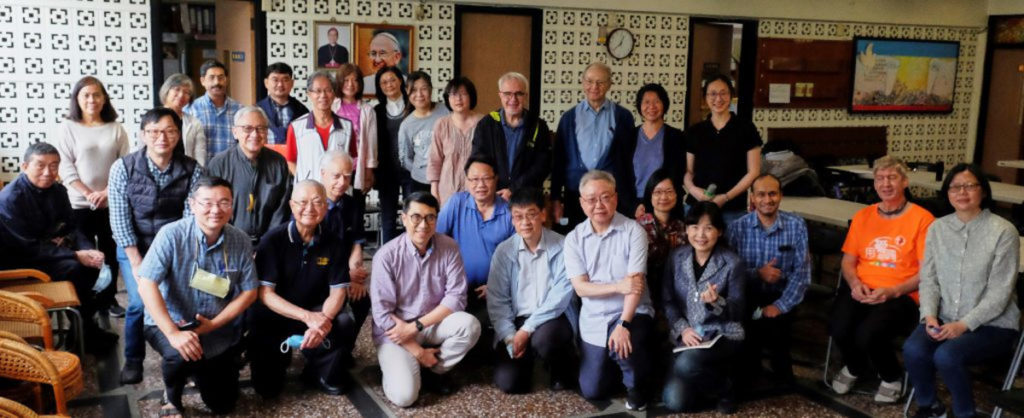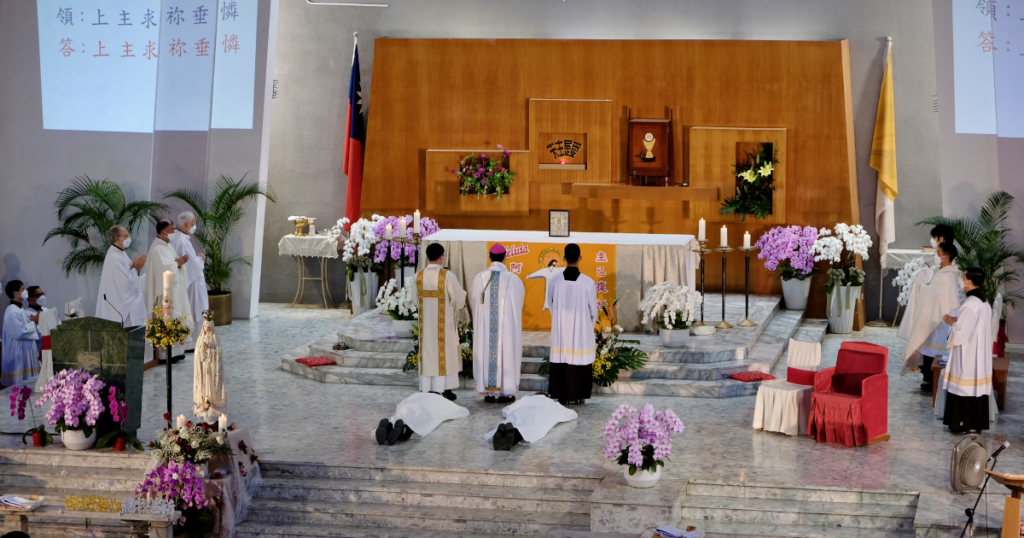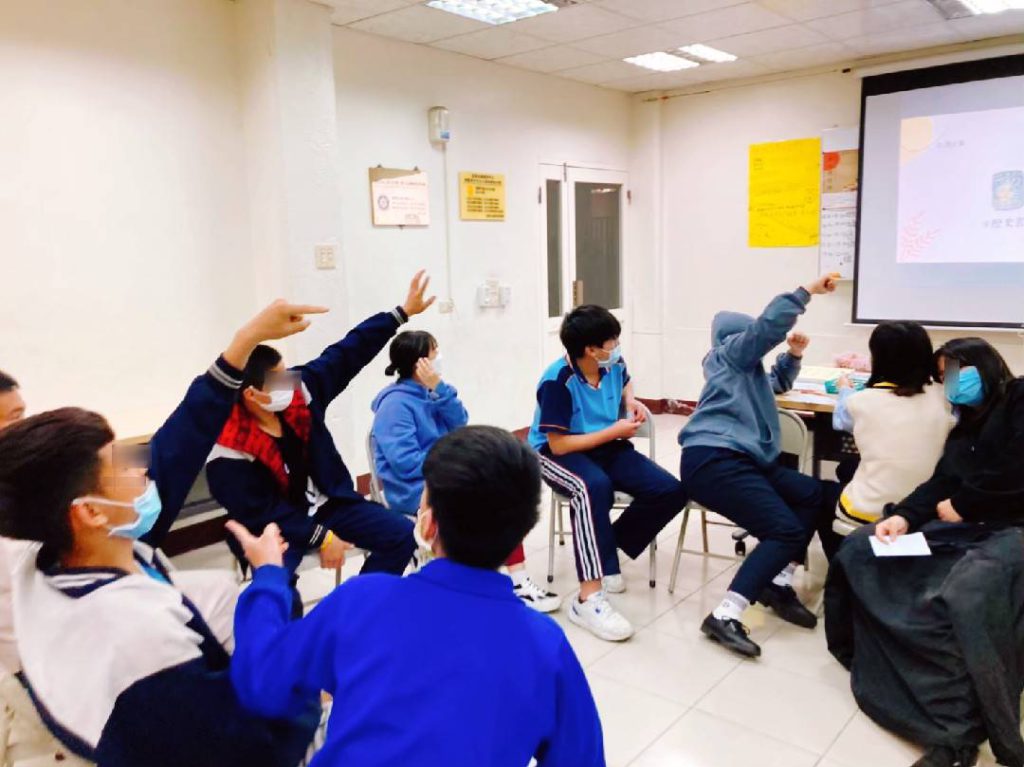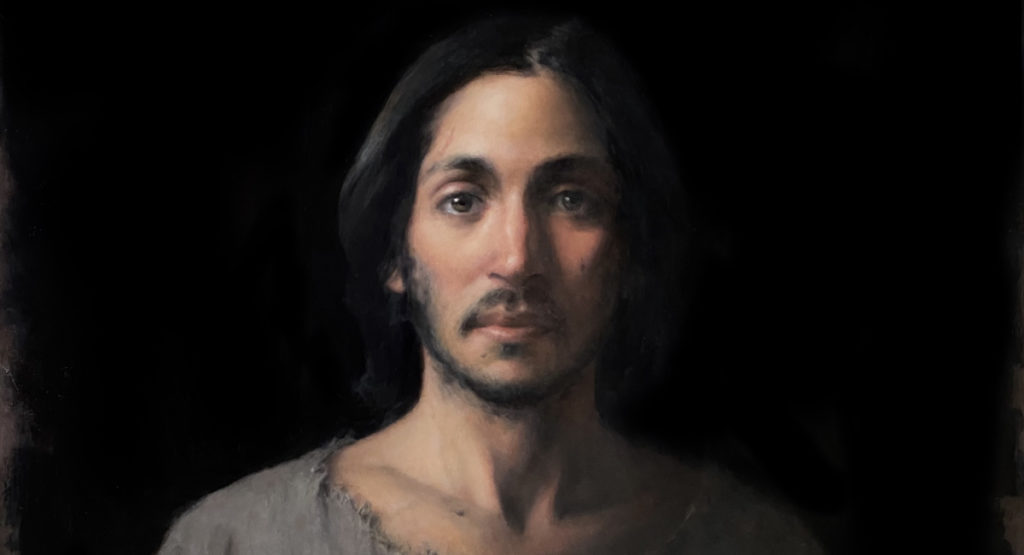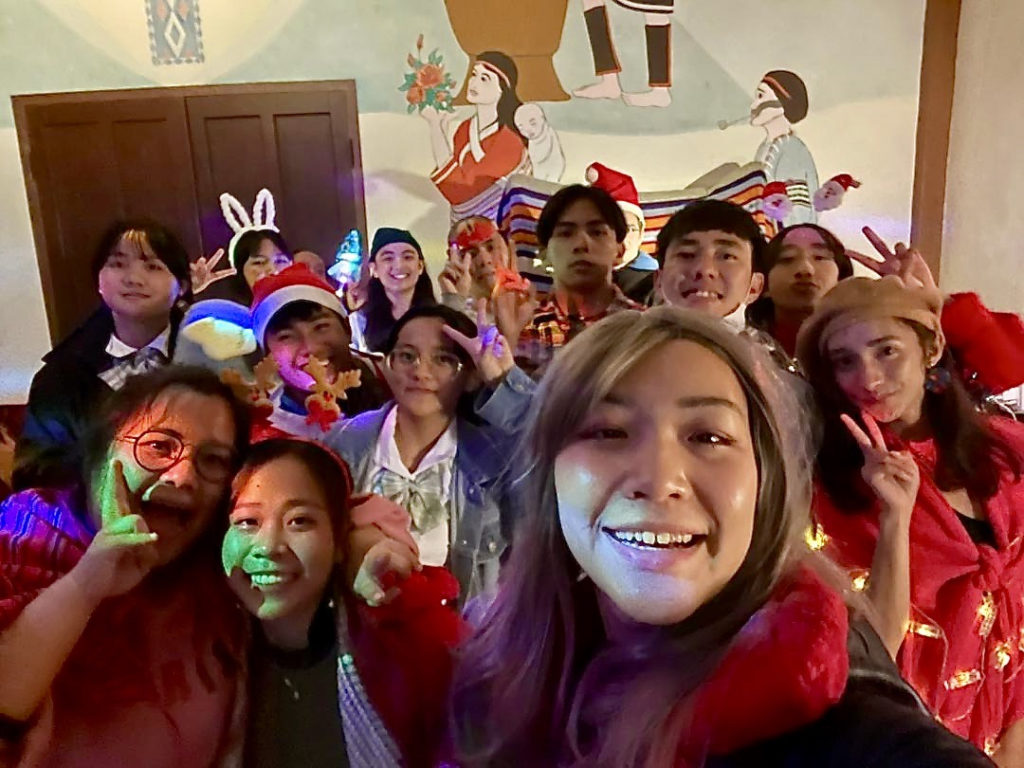“It’s fulfilling, knowing that I am, in a small way, making a difference in someone’s life…” said Quinn Apprill-Sokol, a grade 12 student from St Louis University High School in the U.S. visiting Taiwan for a service program in January. Continue reading “Life would be different if not for the Catholic faith”
Life would be different if not for the Catholic faith
A harbour of friendship amid tumultuous seas
The Migrants and Refugees Network of the Jesuit Conference of Asia Pacific (JCAP) is made up of active and dedicated people working in this Jesuit ministry. Continue reading “A harbour of friendship amid tumultuous seas”
Fr John Lee Hua becomes first priest in Taiwan qualified by civil authorities to lawfully investigate child protection cases
Fr John Lee Hua SJ, who has dedicated himself to the work of protecting children and young adults, continues to refine his expertise in the field of child protection. Continue reading “Fr John Lee Hua becomes first priest in Taiwan qualified by civil authorities to lawfully investigate child protection cases”
Working together for child protection in Taiwan
The Society of Jesus and public institutions in Taiwan, including Taiwanese church hospitals, are collaborating for the protection of children. On 5 May, the Child and Adolescent Protection Center with the Office of Child and Adolescent Protection of the Jesuits in the Chinese Province organised a seminar Continue reading “Working together for child protection in Taiwan”
Strengthening the mission in the Chinese Province
The Jesuits of the Chinese Province and their mission partners in Taiwan convened at the Tien Educational Center in late March to reflect on the significant moments in the past six months, discuss the implementation of the Chinese Province Apostolic Plan 2022-2029, and explore ways to improve networking and collaboration Continue reading “Strengthening the mission in the Chinese Province”
Deacons in the service of the Church
The Chinese Province of the Society of Jesus celebrated the ordination to the diaconate of two scholastics, Philip Fung Hon-chung SJ and Przemyslaw Mąk SJ, on 7 May at the Holy Family Church in Taipei. Due to the Covid-19 pandemic, the organising committee offered two options for people to participate in the liturgical celebration: in-person or through the livestream. Despite the challenges, the faithful, friends, and classmates of the two ordinands filled the church with enthusiasm.
The Archbishop of Taipei, Most Rev Thomas Chung, was initially scheduled to preside at the ordination. However, due to recent cases of infection at the Taipei Archdiocesan chancery office, Most Rev John Baptist Lee, the Bishop of Hsinchu Diocese and chairperson of the Chinese Regional Bishops’ Conference, presided over the liturgy instead. The Mass was also joined by more than 30 concelebrants.
Bishop Lee exhorted the two ordinands to immerse themselves in works of charity, deepen their spiritual life, and be fervent in evangelization. Later, two Jesuit priests, Fr Jaime Valenciano and Fr Barry Martinson vested the new deacons respectively with the stole and dalmatic.
Towards the end of the liturgy, the Socius of the Chinese Province, Fr Luciano Morra SJ, gave the thanksgiving speech on behalf of the Provincial, Fr Stephen Tong SJ, who is currently in Hong Kong and so was unable to attend the celebration due to travel restrictions from the pandemic. Fr Morra read Father Provincial’s letter in which he specifically thanked the Bishop for ordaining our two Jesuit brothers to the diaconate as servants of the Church.
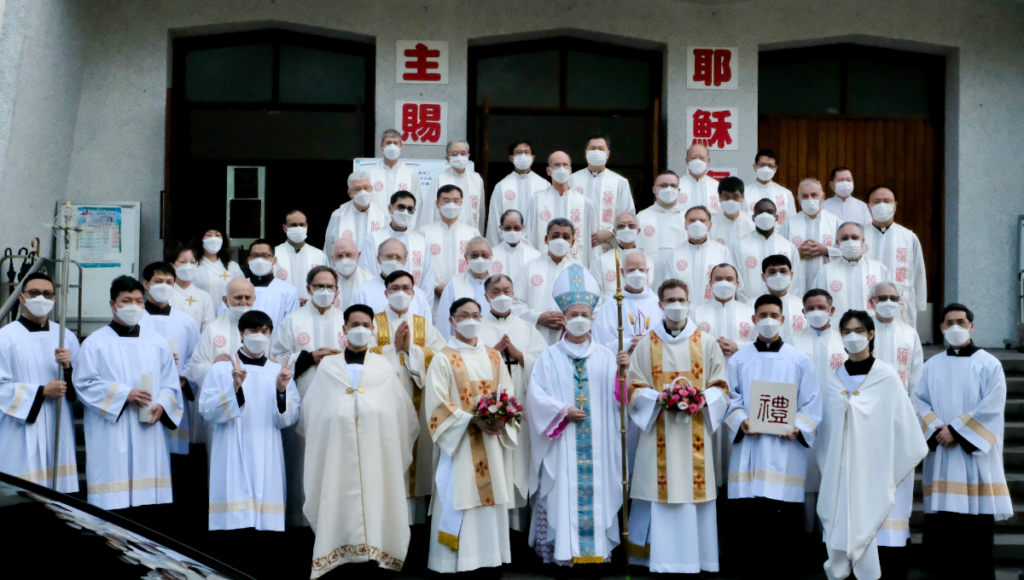
In his letter, Fr Tong also mentioned the varied backgrounds of the new deacons: Philip is a neurologist while Przemyslaw is a ballroom dancer, yet the same Lord called them both and placed them together. This shows forth the diverse and international character of the Society of Jesus. Father Provincial sincerely hopes that the new deacons will reflect the image of God indefatigably in all circumstances.
Fr Tong also described the role and essence of deacons in the early Church. He encouraged the new deacons to concretely embody the spirit of Jesus expressed in his words: “I did not come to be served, but to serve,” He further exhorted them to live out the motto of the Jesuits: “For the Greater Glory of God” standing firmly on the foundation of the Holy Church.
Finally, Fr Tong expressed his gratitude for the generosity of the parents of the deacons. He hopes the two deacons will grow joyfully in their vocation.
At the end of liturgy, the new deacons gave thanksgiving speeches, each in their mother tongue, Cantonese and Polish, respectively. They expressed gratitude for the support of family and friends. Since this ordination day was also the Feast of Our Lady of China, the two deacons venerated the Holy Mother with a bouquet of flowers while singing and dancing to the Magnificat. In so doing they drew this heartwarming celebration to a perfect end.
Companions of aboriginal youth towards a hope-filled future
*Xiaomei, holding a baby in her arms, shifts in her seat. The social worker looks at the certificates on the wall and asks: “Are these all yours?” Xiaomei comforts her infant daughter while stopping a quarrel between her two younger sisters from escalating. She says softly: “Yes! Almost all of them. This one is from a school exam; this is an attendance award; and that one is when I won a running contest! Look, those trophies in the cabinet are also mine. I should have won the championship in the boxing event, but because my teammates were too noisy, the referee called a foul, and I became the runner-up.” “Weren’t you sad at that time?” asks the social worker. Xiaomei looks fondly at the baby in her arms and replies: “It doesn’t matter. I think runner-up is also very good!”
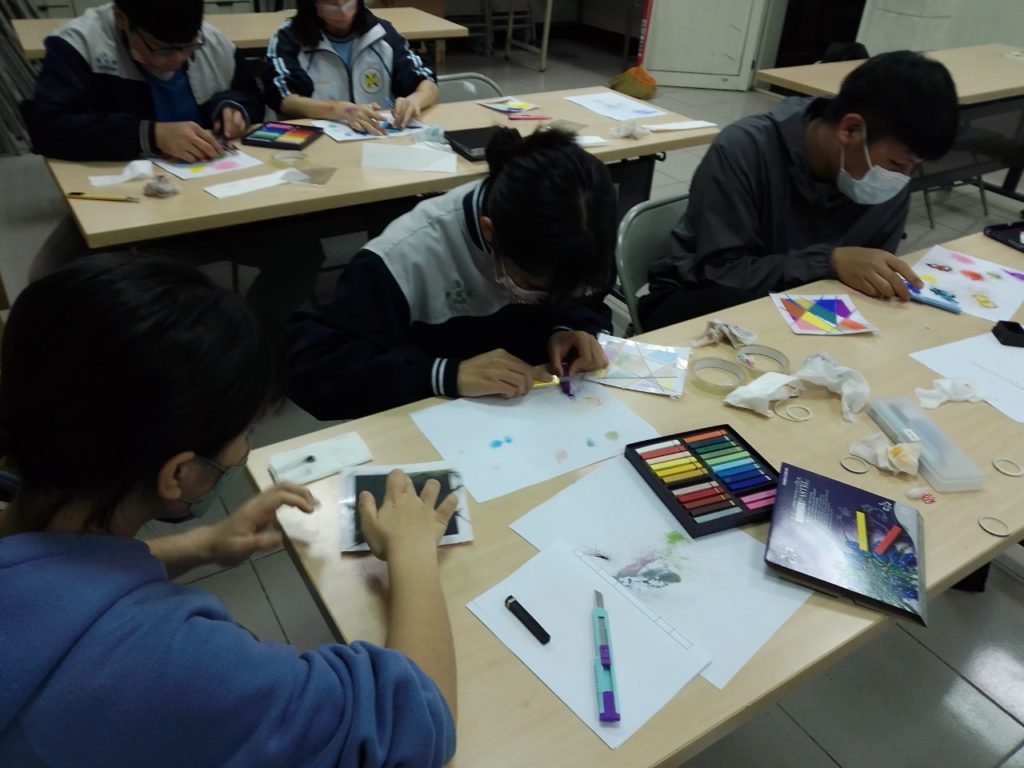
Xiaomei became a mother when she was not yet 17 years old, and the child’s father had just turned 18. Both of them are aboriginal people, and both come from problematic families, with their parents unable to give them the proper support they need. Xiaomei had to stop school to take care of the baby, while the child’s father worked odd jobs at the construction site to support them. As a young mother, Xiaomei lives a different life than women her age. While students complain about their exam being too difficult, Xiaomei worries about the baby in her arms. She has grown mature and thin from her life experience.
The dilemma of social service organisations is that they want to inform the public about the plight of the people in their care so resources could come in, but at the same time, they must protect the privacy of these people. The Rerum Novarum Center in Taipei has been engaged in aboriginal youth training and service work in Zhudong, Hsinchu County for many years. Since aboriginal people have their own distinct culture, they often have to struggle against systemic discrimination and exclusion. Their experience is different from the experience of Han Chinese, the dominant ethnic group in Taiwan, who from childhood learn how to interact with mainstream Taiwanese society.
People also have general impressions about aboriginal people, such as their happy disposition, and their interesting way of speaking. These impressions may sound delightful, however, the truth is often very cruel, especially when they enter the educational system. Aboriginal children cannot compete with the rest of the students. The content of the course is relatively unfamiliar to them, and the contents of their textbooks are very different from their life experiences. Their lessons do not resonate with them, let alone arouse their interest.
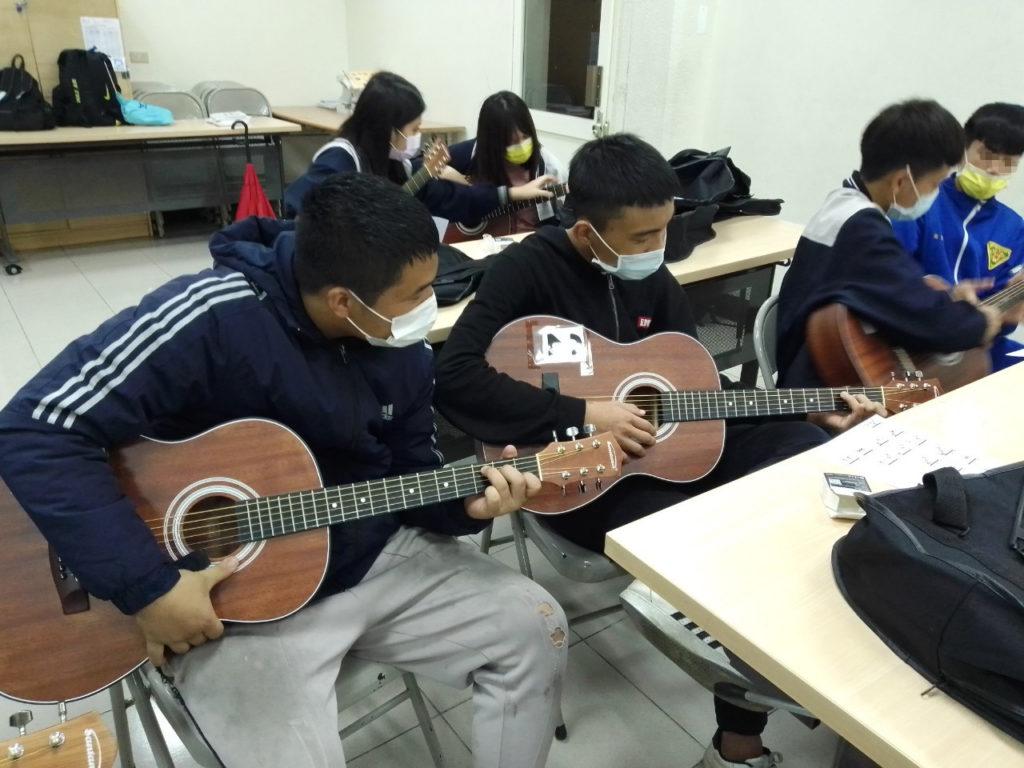
People hope that disadvantaged groups can rise above their status in life through education, and the public is quick to laud special cases wherein an aboriginal person achieved success through education, but the reality is that most aboriginal youth are limited by their resources and are challenged by the system. In the face of mainstream education, what we see in them is fear rather than hope, and what may constitute as deviant behaviours in the eyes of the public, such as dropping out of school, joining gangs, or even having children out of wedlock. What results is more condemnation and disappointment than understanding of their situation.
Aboriginal students desire a sense of achievement and belonging. Thus, Rerum Novarum’s after-school companionship and learning services include learning resources from different networks, as well as a dream realisation plan for aboriginal teenagers. Being able to see their own value and perceive different paths for success that are not limited to the framework of mainstream society help to make them feel more free to choose the courses they want to take up. This enables them to develop more interests and abilities, express themselves, and gain a sense of achievement through enhanced skills and knowledge.
“Actually, I used to have a lot of dreams. I wanted to be a track and field coach, and a boxer. I used to run really fast,” muses Xiaomei, while watching her younger sisters play with a basketball in a dimly lit street. “You can still do it now!” says the social worker. Xiaomei smiles: “I can’t help it. I have to take care of my child now. And after giving birth, I can’t run as fast anymore.”
Creating a fair society for disadvantaged children is a difficult challenge, and something that cannot be done right away. But there are efforts that can be made to prevent the same thing that happened to Xiaomei from happening to more young people, and to provide them more understanding and support. The Rerum Novarum Center is grateful to the many people who support the Aboriginal Youth Development and Dream Project, which not only brings hope to children, but also gives the staff great motivation to continue to work hard. [Rerum Novarum Center]
Vietnamese Jesuit ordained deacon in Taiwan
Michael Nguyen Phuoc Bao Dai Loi SJ from Vietnam was ordained to the diaconate in the chapel of the Fu Jen Faculty of Theology of St Robert Bellarmine in New Taipei City on 21 August. The Most Rev Thomas An-Zu Chung, Archbishop of Taipei, was the ordaining prelate.
Deacon Loi, 38, was born in Hue in central Vietnam. Before entering the Society of Jesus in 2008, he studied sociology at Ho Chi Minh City University of Social Sciences and Humanities. He was sent to Taiwan for his Regency and later for theology studies at St Robert Bellarmine School of Theology.
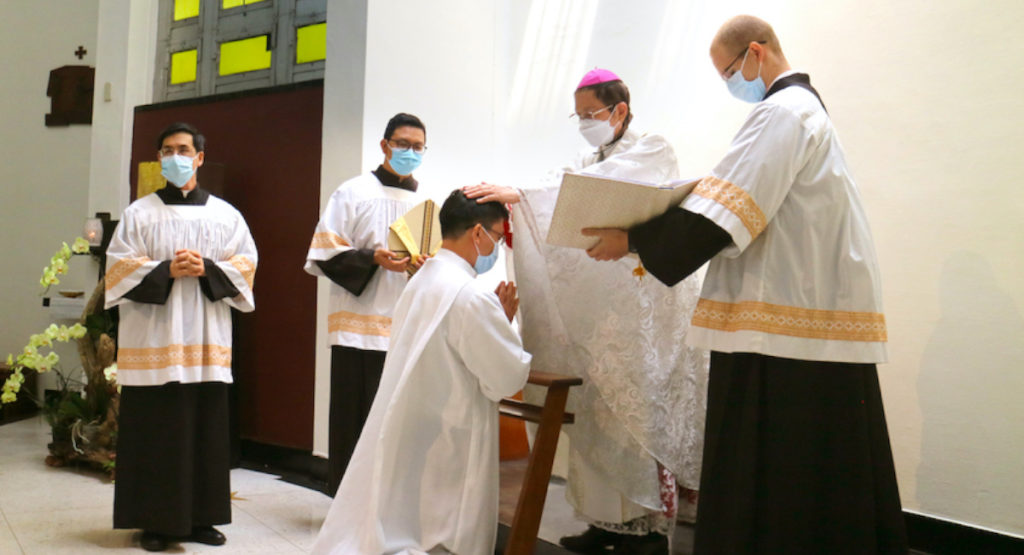
Sharing the faith through art
During this celebration of the Ignatian Year, St Ignatius of Loyola is portrayed in a myriad of ways, from the traditional–as seen in the great paintings, sculptures, and antique texts from Europe–to the more current, usually as illustration or even graphic design. A young Polish Jesuit, Fr Mateusz Orlowski, recently completed his own portrait of Ignatius. “The Conversion of Iñigo de Loyola” captures the visage of a young and handsome man full of life and energy, also vulnerable and starkly human. Continue reading “Sharing the faith through art”
Celebrating love and diversity among indigenous youth
This pandemic has inevitably changed the way we celebrate. Physical gatherings are risky, potential super spreader events where people might catch the virus. The next best thing is to take the celebration online: Zoom parties are the norm these days. And while a virtual celebration is certainly different, we do what we can to stay connected.
Last December, two indigenous youth groups–one from the southern Philippines (Bukidnon, Davao, and Culion) and another from the small village of Chingchuan in Hsinchu County, Taiwan–met online for a Christmas celebration organised by the Jesuits working in indigenous ministry. Despite the geographical distance, language barriers and technical difficulties, the youthful energy and spirit of sharing pervaded over the gathering. As Conference President Fr Tony Moreno SJ noted in his message to the group, it was “the only network within the Jesuit Conference of Asia Pacific to have a Christmas celebration”. This was a true example of how the joy and enthusiasm of the youth, no matter what obstacles they face in life, cannot be extinguished. As Abegelle, a Food Technology student from Bukidnon State University put it, they are “divided by distance, united by the love and hope of our tribes”.
Fr Ambrosio Flores SJ, coordinator for the Jesuit Companions in Indigenous Ministry (JCIM), and Fr Barry Martinson SJ, a pioneer in this ministry and parish priest in Chingchuan, steered the participants to put together a programme centred on sharing–their identities as indigenous youth, as students, and as talented young people with bright futures ahead. From the livestream in Malaybalay, students from the seven tribes of Bukidnon were resplendent in their multi-coloured traditional clothing. Representatives from the Tagbanua tribe in the island of Culion and the Ateneo Lumad Students Association from Davao also participated.
Meanwhile in Taiwan, the lively group of Ayatal youth–all in high spirits from celebrating their Christmas party in the village church earlier that same evening–were bundled up in winter clothing, some wearing Santa hats and holiday accessories. They all had the chance to introduce themselves to each other. Fr Martinson emphasised using song and dance in the programme, which is universally appealing and easy to translate, as English was not spoken by everyone. The presentations were as diverse as the performers: from indigenous Ayatal songs, to traditional Filipino kundiman (love song) accompanied by acoustic guitar, from original rock ballads with full band to classic Christmas carols–and of course, dancing–the spirit of sharing their talents and expressions of joy for the season were palpable.
JCIM has done over two decades of apostolic work with communities all over Asia Pacific–aside from the Philippines and Taiwan, also Australia, Timor-Leste, Indonesia, Malaysia, Thailand, Vietnam, Laos, Myanmar, and Cambodia–and continue to accompany the youth, with a focus on integral formation. As indigenous youth often have to struggle with things other young people take for granted and face obstacles like poverty, discrimination, and maintaining their indigenous identity, it is important to accompany and encourage them and provide opportunities for growth.
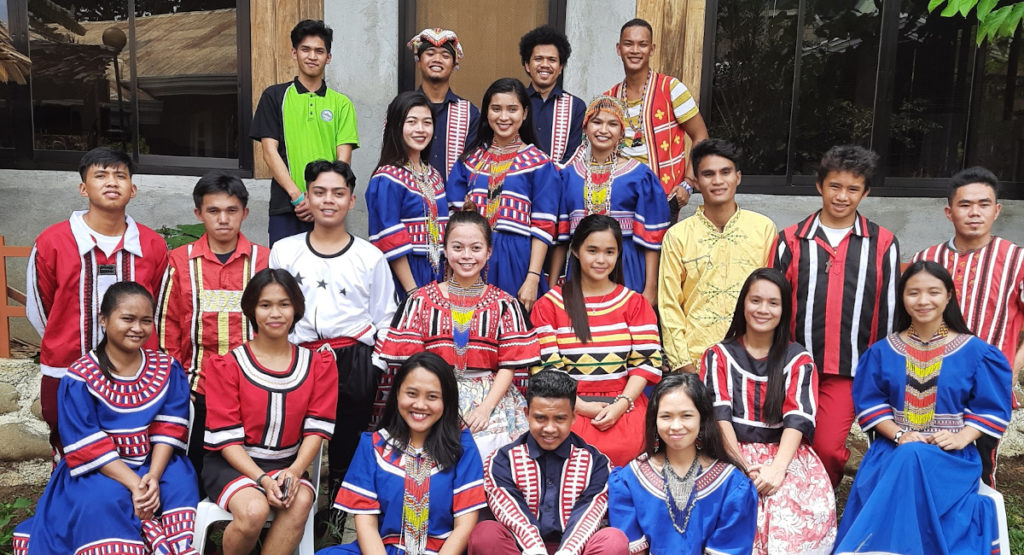
In Bukidnon, the Kapawa hu Paglaum College Scholarship and Formation Programme supports indigenous students as they strive for “self-governance and empowerment, and political, social, economic, and religious inclusion through accompaniment”.
In Chingchuan, while the youth all have the opportunity and resources to complete their education, they are also exposed to the arts through the artistic centres in the village, including the indigenously-designed primary school, a forest arts and crafts village, and the Catholic Church with its mosaics, murals, and stained glass. Thus equipped, they now have to find a way to “advance in society while sustaining and developing their own distinctive culture, to keep their faith in the face of a materialistic society, to preserve their characteristic warmth and hospitality with increasing tourism and opportunities to make money, to find meaning in life when so much has been given to them.” Today, Fr Martinson says, the Ayatal youth “are proud to be what they are. They have come a long way, and it has not been without struggle.”
The gifts from the JCIM online gathering were not in the form of material things. But the participants took home insights with far greater value. “The Christmas encounter made me believe that there is still a thriving fervour of love within the indigenous youth towards one’s tribe, one’s community,” shared Ereca, an agriculture student from the Manobo tribe. Needheart, a sociology major from Bukidnon State University, said: “Sharing with the indigenous youth across Asia Pacific is one of the most memorable moments for me. It reminded me of God’s love for us that is undeniably unending and big.”
If you would like to help the students through the Kapawa hu Paglaum College Scholarship and Formation Programme, please visit this link for more information.

